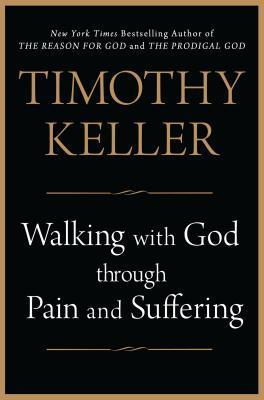More on this book
Community
Kindle Notes & Highlights
Read between
April 13 - April 17, 2018
If anything matters more to you than God you are placing yourself and your heart into something external. Only if you make God matter the most—which means only if you glorify him and give him the glory—will you have a safe life.
There is one more thing to say about God’s glory—it is his absolute splendor and beauty. The word for “glory” in the Old Testament means importance, the word for “glory” in the New Testament (the Greek word doxa) means “praise and wonder; luminosity, brilliance, or beauty.” Jonathan Edwards once said: “God is glorified not only by His glory’s being seen, but by its being rejoiced in.”
The theme that runs through all of Elliot’s work is that to trust God when we do not understand him is to treat him as God and not as another human being. It is to treat him as glorious—infinitely beyond us in his goodness and wisdom. But, as Jesus says, the hour at which God’s glory was most brilliantly revealed was on the cross (John 12:23, 32).
So one of the purposes of suffering is to glorify God by simply treating him as the infinite, sovereign, all-wise, and yet incarnate and suffering God that he is. This glorifies God to God—the most fitting thing that can be done.
They argued that the Amish ability to forgive was based on two things. First, it was grounded in deep reflection and meditation on Christ forgiving his tormentors and killers.289 At the heart of their faith was a man dying for his enemies, and if you are a member of a community that speaks and sings about it—rehearses and celebrates it—constantly, then the practice of forgiving even the murderers of one’s children will not seem impossible. But second, the authors pointed out that at its heart, forgiveness is a form of “self-renunciation”—it means giving up your right to pay back. As
...more
The secular worldview says there is only this world. The here-and-now material universe is the only reality. The natural is real, there is no supernatural. The immanent is real, there is no transcendent—no angels and demons, no spirits and souls, no God or devil. If you live within the secular “immanent frame,” as Charles Taylor says, you would be completely cut off from the hope that then came to Joni. “‘I get it!’ I lit up. . . . So her life wasn’t a waste, I reasoned. . . . Someone was watching her in that lonely hospital room—a great many someones.”
Don’t you see that you are already on camera? There is an unimaginable but real spiritual world out there. You are already on the air. Everything you do is done in front of billions of beings. And God sees it, too.
If you are willing to lose your life for his sake—if you are willing to set aside personal safety, comfort, and satisfaction in order to obey and follow Jesus—then in the end you will find yourself. You will discover who you really are in Christ and finally come to be at peace. If instead you try to achieve personal comfort and satisfaction without centering your life on God in Christ, you will find that you are left with a fatal lack of self-knowledge and inner emptiness.
Trials and troubles in life, which are inevitable, will either make you or break you. But either way, you will not remain the same.
As we have seen, the main “reasons of the heart” that help us endure suffering are the foundational doctrines of the faith—creation and fall, atonement and resurrection. These are profound and rich truths we need to grasp before we suffer, or we will be unprepared for it. And many of these lessons are very difficult to learn “on the job” when we are in the midst of adversity.
Romans 8:1 says that there is “no condemnation” for a believer. That means, simply, that if Jesus has received our punishment and made payment for our sins, God can not then receive a second payment out of us as well. God does not exact “retribution” from a believer, because of Jesus and because, if he really punished us for our sins, we’d all have been dead long ago.319 But God often appoints some aspect of the brokenness of the world (caused by sin in general: Gen. 3; Rom 8:18ff) to come into our lives to wake us up and turn us to him. The severity of this depends on our heart’s need.
When you pass through the waters, I will be with you; and when you pass through the rivers, they will not sweep over you. When you walk through the fire, you will not be burned; the flames will not set you ablaze. For I am the Lord your God, the Holy One of Israel, your Savior. . . . Do not be afraid, for I am with you (Isa 43:2–3, 5).
Their greatest joy was to honor God, not to use God to get what they wanted in life. And as a result, they were fearless. Nothing could overthrow them.


